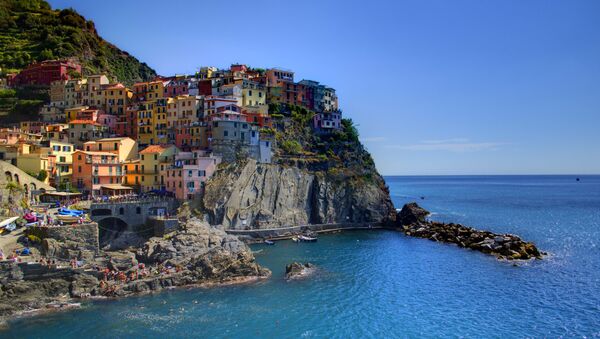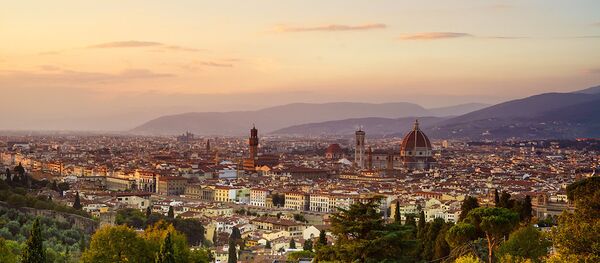During the last elections in Lombardy the movement received 35% of the seats in the regional council, and in Veneto — 47% of the seats. In Tuscany and Liguria the party received 15% and 23% in the regional council respectively.
In all four cases the resolution was initiated by a member of this party, one of the major European parties that adhere to a "pro-Russian" course. Their policy toward Moscow is explained by such factors as a general rejection of European integration and negative attitude toward cooperation with the US, political expert and director of Political Capital Institute Peter Kreko told RBK.
The main goal on the party's agenda is to declare independence from the industrialized northern regions of Italy from the agrarian south. Thus, members of the party mostly pay attention to the economic situation in the regions, which have significantly worsened since the introduction of anti-Russian sanctions and the subsequent food embargo from Russia.
The negative impact of the sanctions has been repeatedly mentioned by representatives of the movement. For instance, in an interview with Sputnik, the head of the faction Lega Nord in Tuscany's Parliament, called the sanctions "crazy" and stressed Russia's importance for Tuscany as a partner.
"If we lose these connections, then it will be difficult to restore them again. Russia is Tuscany's main partner in the field of tourism, exchange of goods and culture. It is a partner we shouldn't lose," he stated.
Head of the faction "Lega Nord" in Liguria, Alessandro Piana, also noted that the sanctions are harmful both for Italy and Russia.
"Liguria historically had close relations with Russia, especially in the tourism sector. Russians are attracted to our nature, Mediterranean cuisine, our agricultural products. And it is agriculture that has been hit by the sanctions most of all, not to mention the reduction of the tourist inflow," Piana said.



